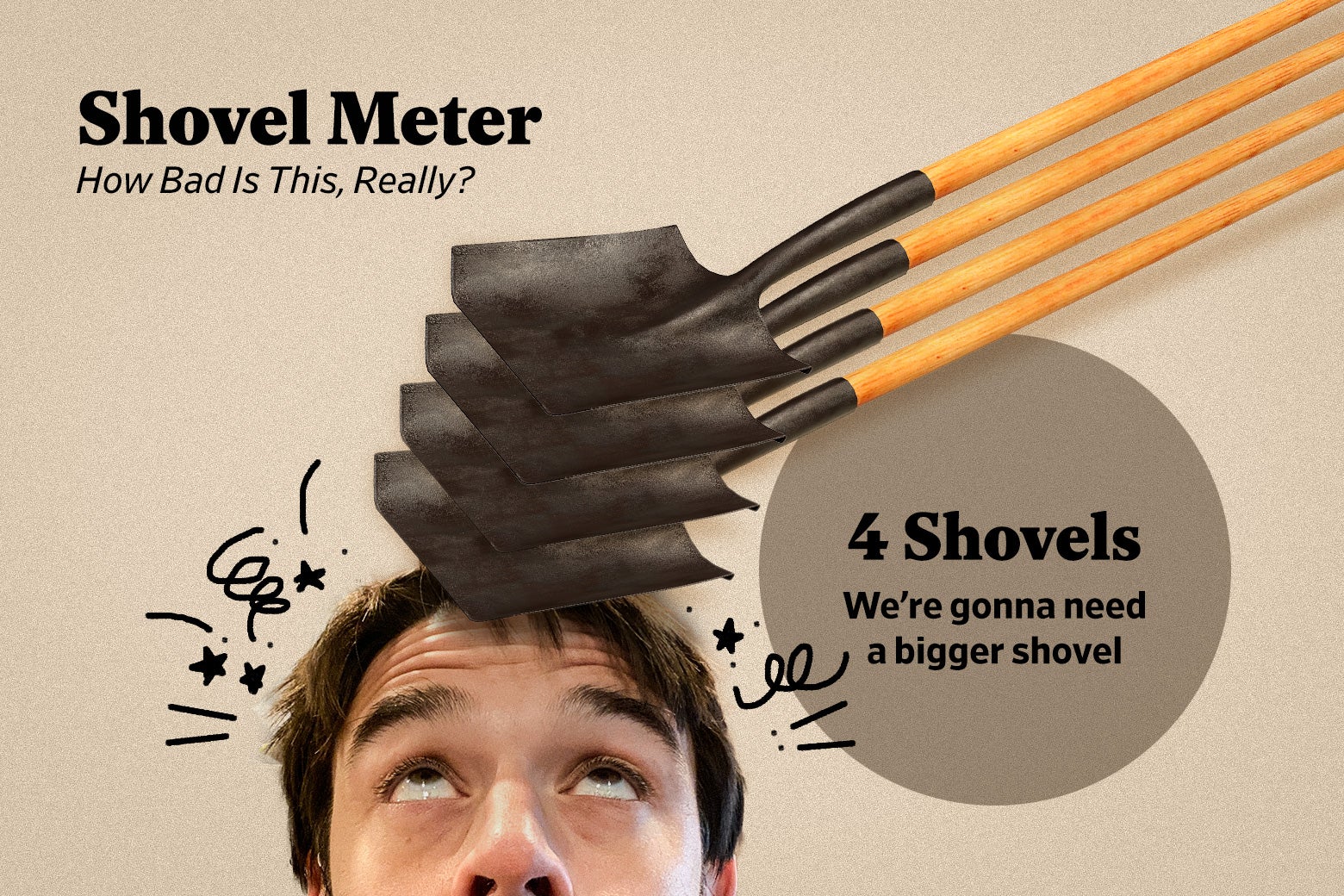Welcome to How Bad Is This, Really?, a recurring feature in which we take the temperature of how things are looking in the presidential election and what seems likely to happen in November.
After a day of meetings and discussion between House Democrats, the word from Capitol Hill Tuesday was that Joe Biden had managed to stop the bleeding. After a number of Dems said in public or to colleagues over the weekend that they believed that the president’s mental deterioration should preclude him from continuing to run for reelection, Biden and congressional leaders prodded a larger number of other members of the House to announce they still support him as a mid-August nominating convention approaches.
Well, sort of. The tortured, circular phrase that has been used frequently by Democrats is “Joe Biden is the nominee” or “Joe Biden is our nominee,” not “I believe that Joe Biden is mentally sharp enough to conduct the kinds of dynamic and persuasive public appearances that will be required to overcome the polling deficit he currently faces.”
As Semafor’s Benjy Sarlin first articulated, Biden’s handful of modestly unscripted postdebate television appearances may not have convinced anyone that his mental condition isn’t a problem. (The debate was like a cursed version of The Dress for Democrats; instead of assessing basic sensory perceptions, it was a test of who would acknowledge the basic evidence of their eyes and ears.) But it did convince them that Biden is dead set on not dropping out of the presidential race voluntarily—and that, as such, further public criticism would be futile at best and damaging to the entire party’s November prospects at worst. Thus … Joe Biden is the nominee.
So is that it? Matter settled? It’s doubtful, for a few reasons. For one, Senate Democrats—who are not under quite as much pressure to fall in line as representatives are—have not quite reached a He is the nominee place yet. Minnesota’s Amy Klobuchar and Washington’s Patty Murray, both long-tenured members of the upper chamber who exist somewhere close to the party’s center, released statements that amount to Let’s wait and see what he does next. Asked by a reporter on Tuesday whether Biden should stay on the ticket, second-ranking Senate Democrat Dick Durbin of Illinois said, “We’ll see.”
People close to the president, meanwhile, are arguing not just that the choice of whether to drop out should be his alone but that he affirmatively needs to stay in the race because he remains the party’s best candidate. Since Biden beat Trump in 2020 over the objections of various pundits and haters, this line of thinking goes, any current objections are, if anything, just further evidence that he’s going to do it again. Well-connected Democratic donor Dmitri Mehlhorn took this position in an interview with Drop Site News, while former White House chief of staff Ron Klain has also expressed it in various tweets.
These arguments posit that there is some sort of special thing about Biden—a black-box Biden-ness quality—that appeals to voters but is imperceptible to elite critics fixated on his verbal inelegance. He might be trailing a little in the polls, the reasoning goes, but he’s still within the margin of error in most surveys—and just wait until he gets cooking.
But this is backwards logic—when you say he’s going to lose, it means he’s going to win—and not historically true. In 1987 Biden ran for president and said that he felt he would win the race despite weak polling. He did not. In 2008 he ran again, polled poorly, finished fifth in the Iowa caucuses, and dropped out. In 2020, after polling poorly ahead of the Iowa caucuses and New Hampshire primary, he finished fourth (Iowa) and fifth (New Hampshire). Great calls by the haters, in those cases.
Biden’s eventual victory in 2020, furthermore, was the result of coordination among high-level Democrats who—based on polls that showed him beating Donald Trump head-to-head—judged that he would be the strongest general-election candidate. The bet paid off, in those circumstances, with the 2020 version of Biden running against an unpopular incumbent in a race that involved few public appearances because of COVID, and beginning with a lead. It’s quite a stretch to say that that single data point means he’ll win this time, from a worse starting position.
But that’s the good news (as it were) for Biden skeptics. The idea that there’s something voters like about Biden that the press doesn’t understand can hold up going forward only with plausibly close or improving polling. Mehlhorn says outright that he’d be proved wrong if polls continue to move away from the president. That’s what seemed to be happening Tuesday, at least, with the release of a dismal Wisconsin poll in which Biden trails Trump by 5 points.
We conclude this column with a rating on the Shovel Meter, a measure of exactly how sedated you might want to be, on a scale of one to five shovel blows to the head, if you’re concerned about Trump’s reelection. Today we’re at four, because things are bad, but perhaps not permanently and irrevocably bad.

The vaunted, winning Biden—the People’s Biden—will have to show up sometime soon to reverse the slide, perhaps at the solo Thursday press conference he’ll be holding at the conclusion of this week’s NATO summit in Washington. And if the diminished, confused debate Biden shows up Thursday instead? Well, then we do this all again.
